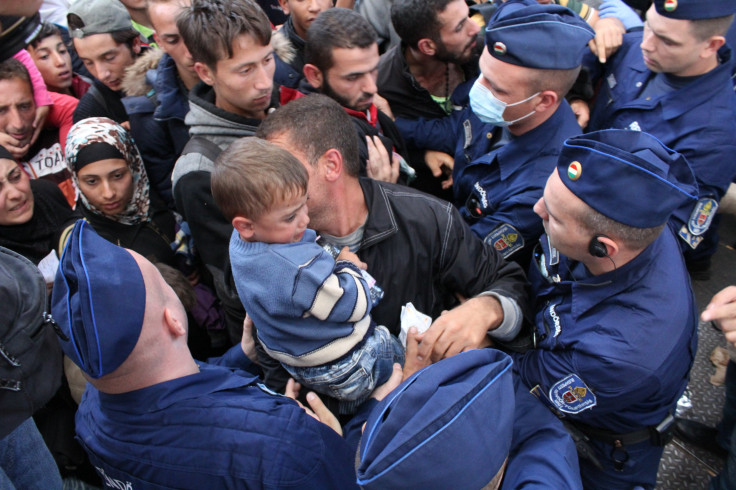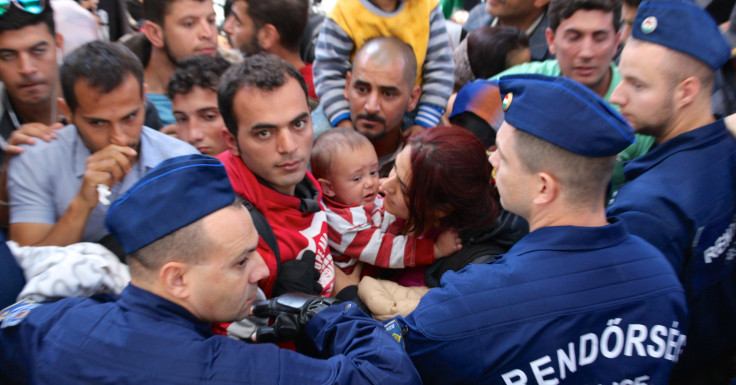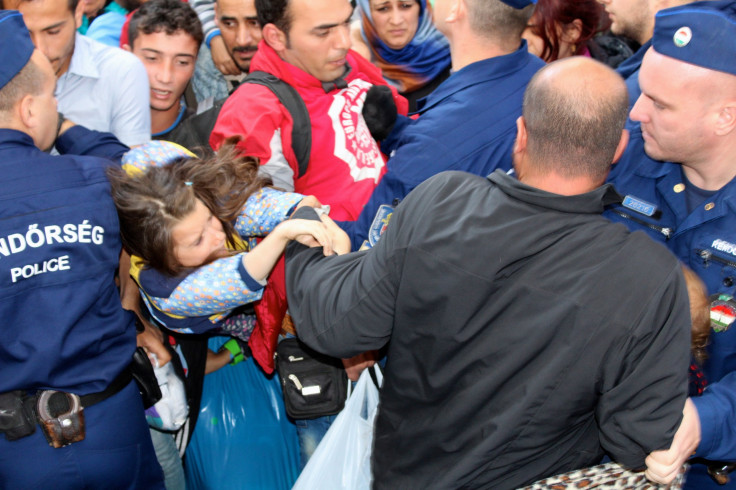Europe's Refugee Crisis: Frantic Scene In Budapest, Hungary, As Crowds Vie For Last Seats On Trains To Austria, Germany

BUDAPEST, Hungary -- The woman's voice cracked over the loudspeaker as she called for people waiting in the lobby at Keleti, site of Budapest's main railway station, to begin boarding the next train out of the city. At the sound of the announcement, hundreds of refugees from the Middle East and North Africa, who had been waiting for more than five hours, got up from the cement ground where they'd been sitting and stampeded toward the platform opening.
Police officers, in one horizontal line, rushed toward the crowd of refugees, blocking them from getting through. In broken English, the Hungarian officers tried to get the refugees to "stop" and "back up." Confused and unable to fully understand the English, the refugees began to yell back in frustration. Children sitting on their fathers' shoulders cried. Mothers holding newborn babies shrieked.
The officers corralled more than 500 refugees into one heap on the side of the platform and created a small passing point so the refugees could pass one at a time. Then the officers counted them, one by one, sometimes separating families. There are only a few hundred seats on each train and not everyone would get on.
"No push!" one officer yelled at a teenage boy, shoving him in the chest, forcing him to back up and fall into the group of women behind him.

The Hungarian police officers tried frantically to get children through the small opening first.
"Baby one, baby two, come," one officer said, pointing to the two children in front of him. Fathers in the back of the crowd held up their children so they could get through first.
But as children passed through, the people behind them tried to get through, too, sometimes holding on to the hoods of the children in front of them. One girl had to be passed through a sea of men, mosh-pit style, to get through.

Often, one member of a family would get through without the others. Crying, unable to speak Hungarian, one woman tried to tell an officer she had her son waiting in the pack and that she could not leave without him.
The officer, unable to understand, yelled at her, demanding she make her way to the train without her son.
There was one volunteer translator at the train station Wednesday. Wearing a neon yellow vest, the woman, perched on top of the barrier to the platform, translated the police officers' demands to the refugees.
Authorities here are expecting thousands more refugees to reach Budapest from Serbia this week before Hungary implements a new law that would force them into "transit zones" along the border. For refugees, the zones will act as reception centers, but entrance into the zone will not mean that they have legally entered the country. The zones will operate as quasi-autonomous areas with volunteers and humanitarian groups, as well as local authorities to process paperwork.
The authorities have not said whether they will force refugees to return to Serbia, not an EU member, once they reach the transit zone.
As the trains pull out of the Keleti train station, the refugees who didn't get on the train sit back down on the cement ground and wait for the next one. They don't know when or if they will be able to leave.
© Copyright IBTimes 2024. All rights reserved.











